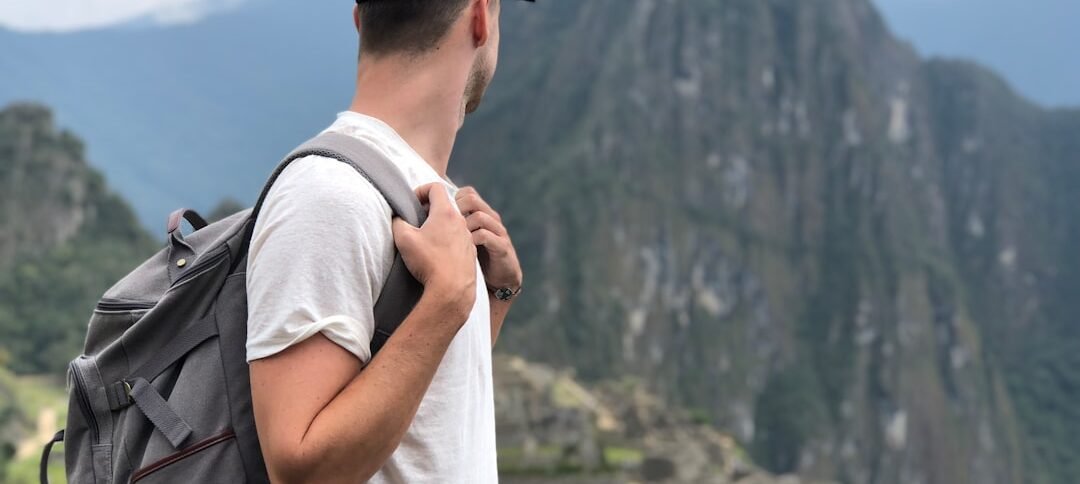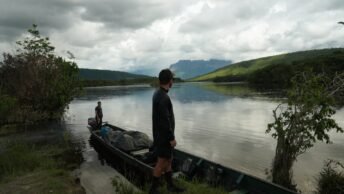The nomad lifestyle represents a profound shift in how individuals perceive work, travel, and personal fulfillment. It is characterized by a desire to break free from the constraints of traditional living, allowing individuals to explore the world on their own terms. This lifestyle is not merely about traveling from one destination to another; it embodies a philosophy of life that prioritizes experiences over possessions.
Nomads often embrace a fluid existence, moving from city to city, country to country, and immersing themselves in diverse cultures. This freedom can lead to a deeper understanding of the world and oneself, as each new location offers unique lessons and perspectives. For many, the allure of the nomadic lifestyle lies in its promise of adventure and spontaneity.
Imagine waking up in a bustling market in Marrakech one day and finding yourself hiking through the serene landscapes of Patagonia the next. This lifestyle allows for a rich tapestry of experiences that can be both exhilarating and transformative. However, it also requires a level of adaptability and resilience, as nomads must navigate the complexities of different environments, languages, and social norms.
The journey is often as much about self-discovery as it is about exploration, as individuals learn to embrace uncertainty and cultivate a sense of belonging wherever they go.
Key Takeaways
- Embracing the nomad lifestyle allows for freedom and flexibility in exploring the world on your own terms.
- Minimalism enables a richer experience by living with less and focusing on meaningful experiences.
- The art of adaptation is essential for thriving in new environments and making the most of cultural immersion.
- Connecting with local cultures provides valuable learning experiences and a deeper understanding of the world.
- Sustainable travel practices are crucial for minimizing environmental impact and preserving the beauty of the places we visit.
Embracing Minimalism: Living with Less and Experiencing More
At the heart of the nomadic lifestyle is the principle of minimalism, which encourages individuals to live with less in order to experience more. This philosophy challenges the conventional notion that happiness is tied to material possessions. Instead, minimalism advocates for a life stripped of excess, focusing on what truly matters: experiences, relationships, and personal growth.
For nomads, this often means downsizing their belongings to fit into a single backpack or suitcase, allowing them to travel light and move freely. Living minimally can lead to profound changes in perspective. When individuals let go of physical clutter, they often find mental clarity and emotional freedom.
The act of decluttering can be liberating, as it forces one to confront what is genuinely important. For instance, a nomad might choose to carry only essential clothing, a laptop for work, and a few cherished personal items. This not only simplifies travel logistics but also fosters a deeper appreciation for the places they visit.
By focusing on experiences rather than possessions, nomads often find themselves more engaged with their surroundings, whether it’s savoring street food in Bangkok or hiking through the fjords of Norway.
The Art of Adaptation: Thriving in New Environments

Adaptation is a crucial skill for anyone embracing the nomadic lifestyle. Each new destination presents its own set of challenges and opportunities, requiring individuals to be flexible and resourceful. From navigating public transportation systems in foreign cities to understanding local customs and etiquette, the ability to adapt can significantly enhance the travel experience.
Nomads often develop a keen sense of observation and an openness to learning, which allows them to thrive in diverse environments. For example, consider a traveler who arrives in Tokyo with little knowledge of Japanese culture or language. By immersing themselves in the local environment—trying new foods, participating in community events, or even taking language classes—they can quickly acclimate and form meaningful connections.
This process of adaptation not only enriches their travel experience but also fosters personal growth. Each challenge faced while adapting becomes an opportunity for learning, whether it’s mastering the art of bargaining in a Moroccan souk or understanding the nuances of social interactions in Scandinavian countries.
Connecting with Cultures: Learning from Locals Around the Globe
| Country | Number of locals interviewed | Percentage of locals who prefer traditional clothing | Percentage of locals who speak English |
|---|---|---|---|
| Japan | 25 | 60% | 40% |
| India | 30 | 75% | 20% |
| Italy | 20 | 50% | 60% |
One of the most rewarding aspects of the nomadic lifestyle is the opportunity to connect with diverse cultures around the globe. Engaging with locals provides invaluable insights that go beyond what guidebooks can offer. These interactions can lead to authentic experiences that deepen one’s understanding of a place and its people.
Whether it’s sharing a meal with a family in Italy or participating in traditional ceremonies in Bali, these connections create lasting memories and foster a sense of belonging. Building relationships with locals often requires an open mind and a willingness to step outside one’s comfort zone. Language barriers may exist, but gestures, smiles, and shared experiences can bridge those gaps.
For instance, a traveler might find themselves invited into a local home for dinner after striking up a conversation at a market stall. Such moments not only enrich the travel experience but also challenge preconceived notions about different cultures. By actively seeking out these connections, nomads can cultivate empathy and appreciation for the diversity that exists within our world.
Sustainable Travel: Minimizing Your Environmental Impact
As awareness of environmental issues grows, many nomads are increasingly committed to sustainable travel practices. This involves making conscious choices that minimize their ecological footprint while exploring new destinations. Sustainable travel encompasses various aspects, from choosing eco-friendly accommodations to supporting local businesses that prioritize environmental stewardship.
By adopting these practices, nomads can contribute positively to the communities they visit while preserving the natural beauty of the places they explore. For example, instead of staying at large chain hotels that may contribute to over-tourism and environmental degradation, many nomads opt for eco-lodges or homestays that emphasize sustainability. These accommodations often use renewable energy sources, practice waste reduction, and engage in conservation efforts.
Additionally, nomads can choose to travel by public transportation or bicycle rather than relying on cars or planes whenever possible. Such choices not only reduce carbon emissions but also allow for a more immersive experience with local communities and landscapes.
Work and Travel: Balancing a Career with Wanderlust

Planning for Success
Establishing a routine that accommodates both work commitments and exploration is essential for success as a digital nomad. Many find that setting specific work hours helps maintain productivity while still allowing time for sightseeing or engaging with local cultures.
Structuring the Day
For instance, a graphic designer might dedicate mornings to client projects while reserving afternoons for exploring local markets or hiking nearby trails. This structure not only ensures that work gets done but also enhances overall well-being by providing opportunities for relaxation and enjoyment.
The Benefits of Remote Work
This balance of work and adventure can lead to a more fulfilling life, where individuals can pursue their passions while still meeting their professional obligations.
Overcoming Challenges: Navigating the Ups and Downs of Nomad Life
While the nomadic lifestyle offers incredible freedom and adventure, it is not without its challenges. Frequent travel can lead to feelings of isolation or homesickness as individuals navigate unfamiliar environments without established support systems. Additionally, logistical issues such as visa regulations, accommodation availability, or health concerns can arise unexpectedly.
Overcoming these challenges requires resilience and resourcefulness. For example, consider a traveler who faces sudden illness while abroad. Navigating healthcare systems in foreign countries can be daunting; however, having access to online resources or local contacts can make all the difference.
Building a network of fellow travelers or locals can provide support during difficult times, offering advice or companionship when needed most. Embracing these challenges as part of the journey allows nomads to develop problem-solving skills and adaptability that serve them well beyond their travels.
Finding Community: Building Relationships on the Road
Despite the transient nature of nomadic life, building community is essential for emotional well-being and personal growth. Many nomads seek out like-minded individuals through co-working spaces, hostels, or social media groups dedicated to travelers. These connections can lead to friendships that span continents and cultures, enriching the travel experience through shared stories and adventures.
Participating in local events or volunteer opportunities can also foster a sense of community while providing meaningful engagement with residents. For instance, joining a beach cleanup initiative in Thailand not only contributes positively to the environment but also connects travelers with locals who share similar values. These relationships often transcend geographical boundaries, creating lasting bonds that continue long after the journey ends.
By actively seeking community on the road, nomads can combat feelings of loneliness while enriching their travels through shared experiences and mutual support.
If you’re a digital nomad looking to enhance your travel photos, you may want to check out this article on the top 5 AI image enhancers for 2022 at Digital Nomad Institute.








